Read the latest paper on the innovative role of European University Alliances, written by representatives of UNICA
25 October 2024 | From UNICA

European University Alliances, the EU flagship initiative of the European strategy for universities, are rather recent but have already revolutionised the fields of Higher Education and Research in Europe. In a recent paper published in the peer-reviewed journal Internationalisation of Higher Education – Policy and Practice, UNICA’s Secretary General, Prof. Luciano Saso, along with UNICA President Prof. Sorin Costreie, EduLAB Coordinator Prof. Romita Iucu, and EduLAB member Prof. Alexandru Cartis, examine the origins of the initiative and explore how these alliances serve as powerful catalysts for advancing the sector’s shared aspirations – including the highly anticipated European Degree. The paper concludes with a few pounding questions related to the future of the initiative, including aspects related to the sustainability and source funding of the alliances.
Alliances vs Networks?
One important remark the paper addresses is the role of traditional networks of universities with regards to the alliances. These networks, such as UNICA, have a long withstanding experience, with many having its origins around the late 80s/ early 90s. Although the activities of alliances and networks seem to often overlap, the two are actually different in scope, focus, and even the way they promote collaboration among its members: European university alliances tend to be more formal, goal-oriented, and integrated, compared to traditional networks, which often focus on broader collaboration and information sharing.
This distinction means that rather than competing, networks and alliances complement each other, each advancing shared goals through unique methods. As the article stresses with regards to traditional networks:
“These networks are essential to the success of the alliances, helping universities navigate transnational complexities while contributing to the European Higher Education Area (EHEA). Through their collective expertise, they ensure that the European universities Alliances remain adaptive, resilient, and innovative in addressing both educational and societal challenges.“
Read the article’s abstract below and head to the journal’s website to access the article in full.
“The innovative role of European Universities Alliances in the European Higher Education Area“
Abstract
The paper explores the evolution and impact of key initiatives within the European Higher Education Area (EHEA), from the Erasmus programme and the Bologna Process to the European Universities Initiative (EUI). It examines how these initiatives have shaped transnational collaboration, focusing on their roles in harmonising HE systems and introducing innovations like micro-credentials and the European Degree. The challenges posed by the COVID-19 pandemic and the adaptive solutions developed by the alliances are discussed, highlighting the shift to virtual mobility and blended learning models. The paper analyses how alliances contribute to the relevance and sustainability of HE in Europe, emphasizing their potential to enhance graduate mobility, improve employability, and foster innovation.
Download the article at the Journal’s website (login required) or send an email to office@unica-network.eu to receive the full pdf


 Co-funded by the European Union. Views and opinions expressed are however those of the authors only and do not necessarily reflect those of the European Union or the European Education and Culture Executive Agency (EACEA). Neither the European Union nor the granting authority can be held responsible for them.
Co-funded by the European Union. Views and opinions expressed are however those of the authors only and do not necessarily reflect those of the European Union or the European Education and Culture Executive Agency (EACEA). Neither the European Union nor the granting authority can be held responsible for them.